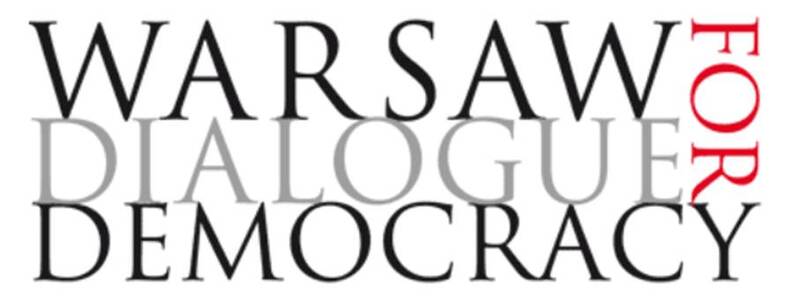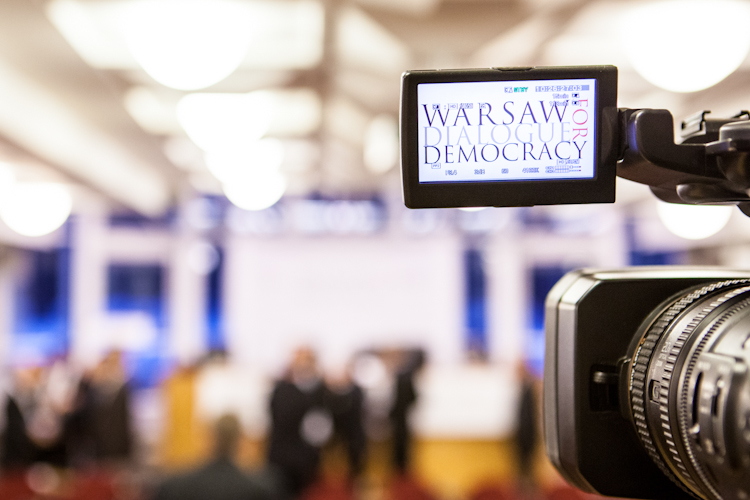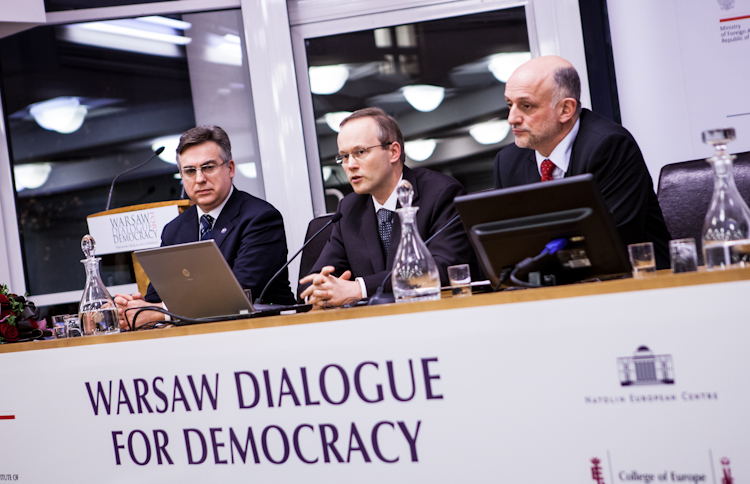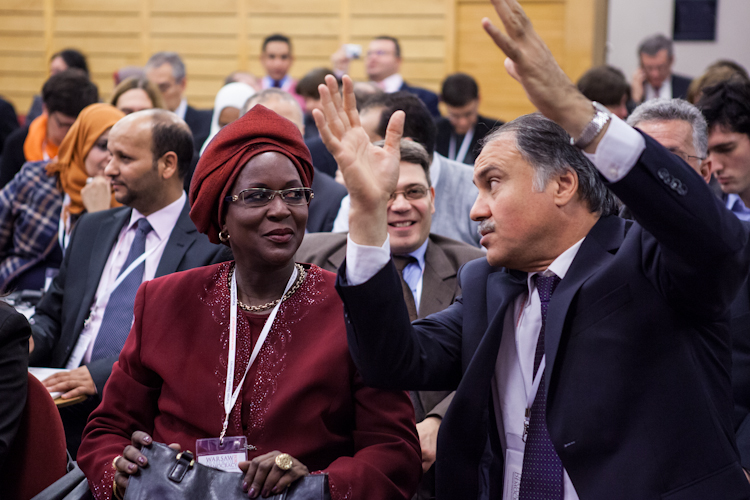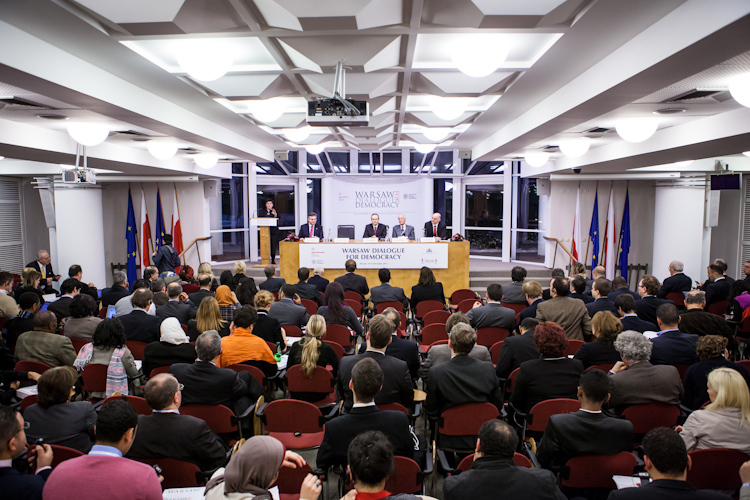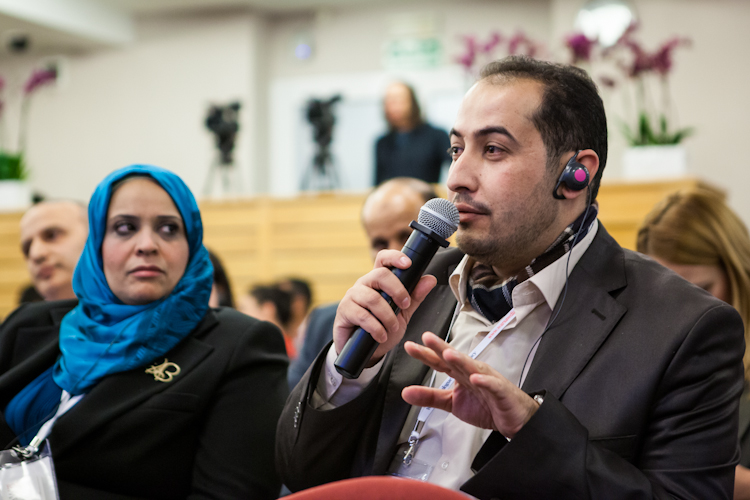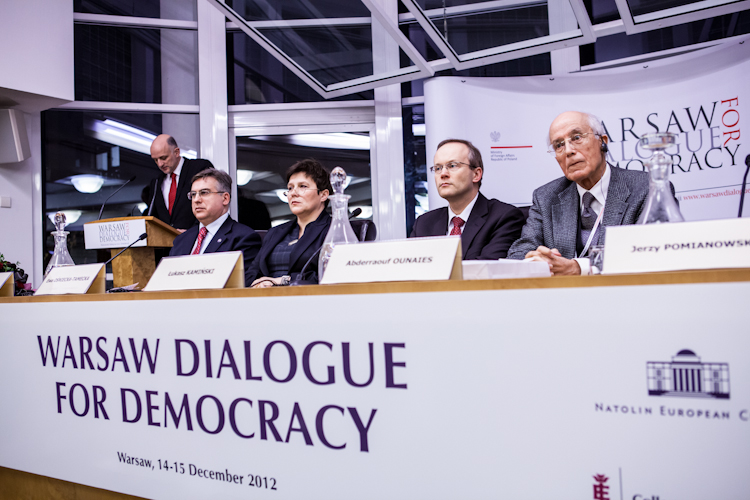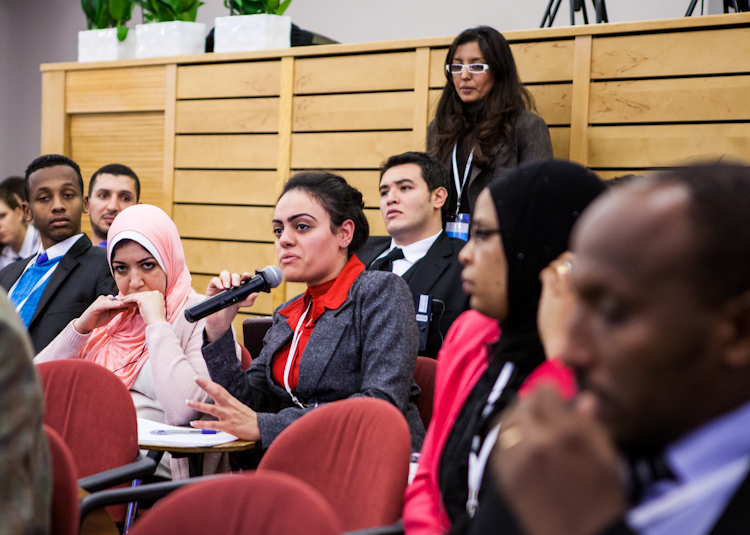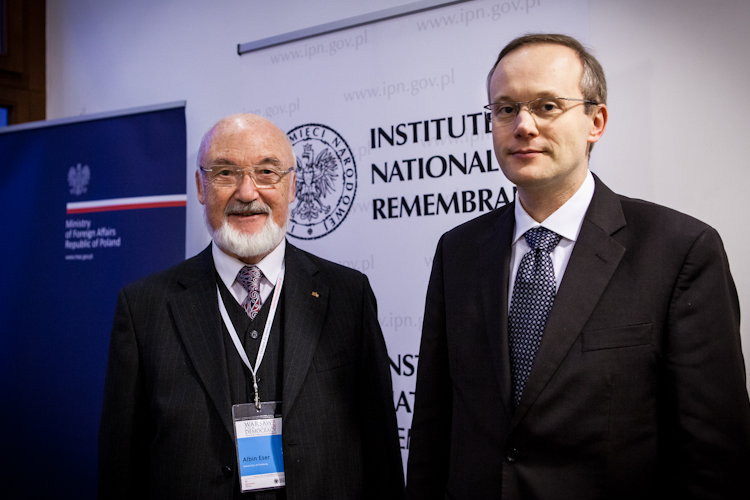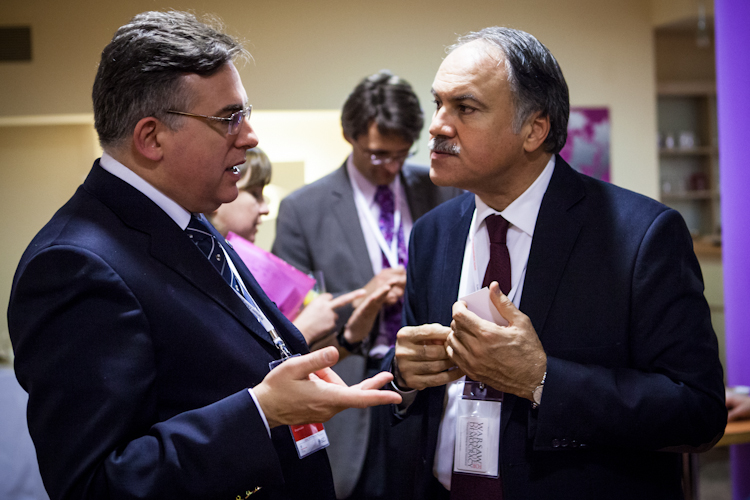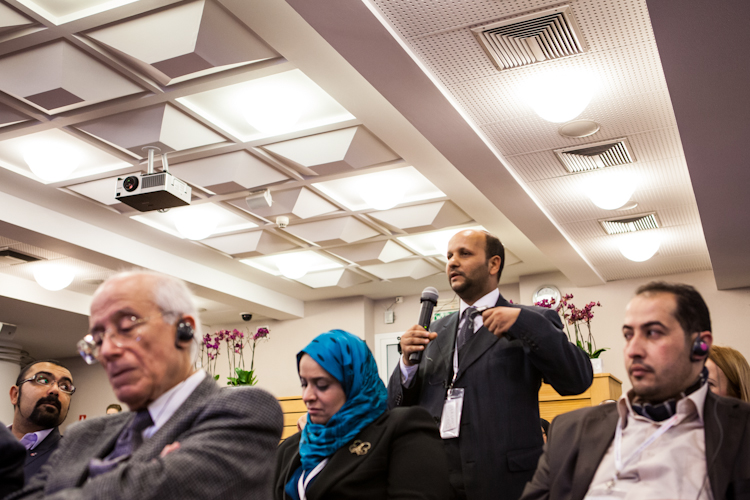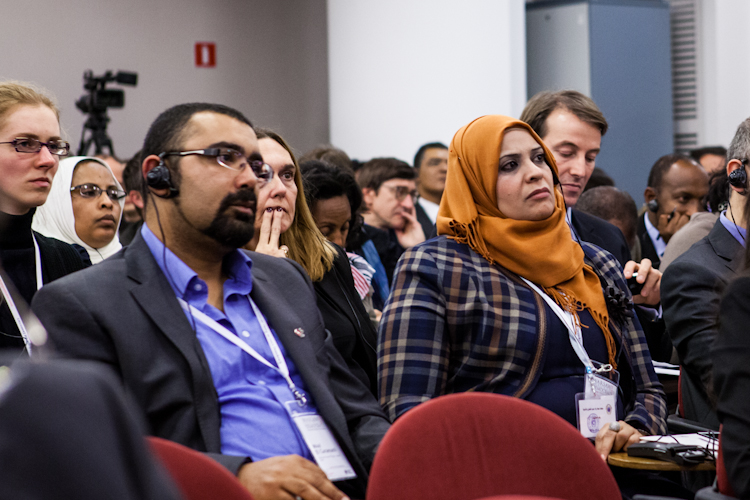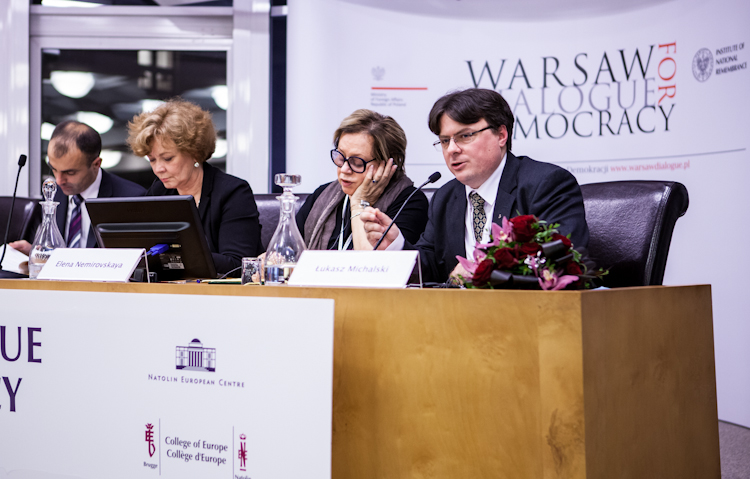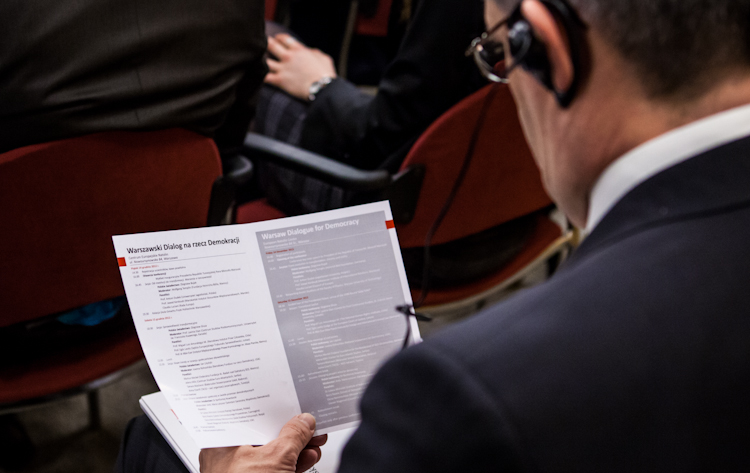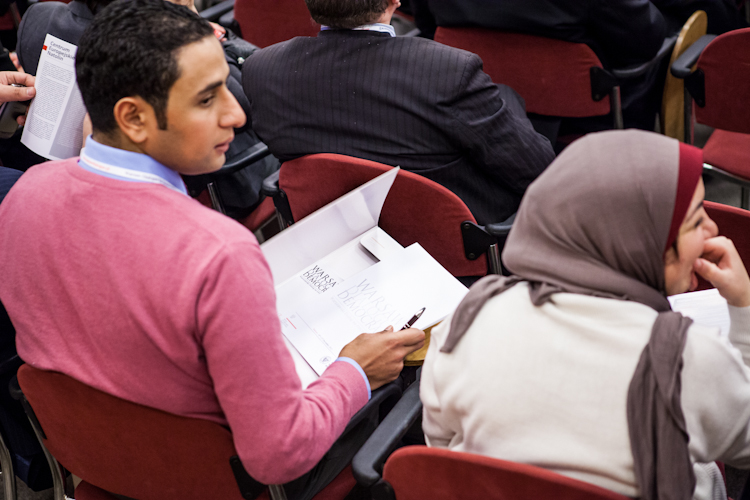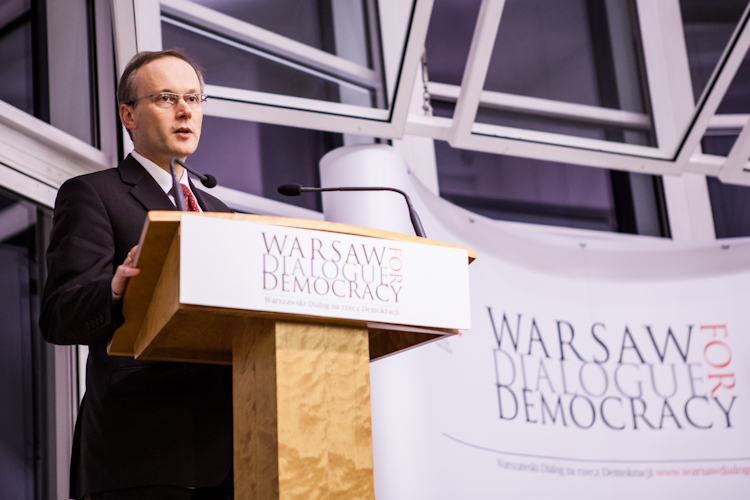As many as 176 participants from 40 countries, even as far away as Zimbabwe and Chile, came to Warsaw for the first edition of the conference "Warsaw Dialogue for Democracy". On 14-15 December at the College of Europe in Natolin they discussed the process of democratization in the modern world.
The conference "Warsaw Dialogue for Democracy", organized by the Ministry of Foreign Affairs and the Institute of National Remembrance, gathered people involved in the promotion of democracy, representatives of think-tanks, NGOs, international organizations, and governments from all continents. Representatives of the Eastern Partnership countries (Armenia, Azerbaijan, Belarus, Ukraine), the Balkan countries (Croatia, Macedonia, Bosnia and Herzegovina, Serbia, Montenegro), Middle East (Israel, Jordan), North Africa (Morocco, Algeria, Tunisia, Libya, Egypt ), sub-Saharan Africa (Ethiopia, Zimbabwe) and South America (Argentina, Chile) arrived in Warsaw. Democracy is deeply inscribed in the Polish history and it is an important part of the Polish civilization heritage. In the name of solidarity, we want to share our experience, but also we want to know the experience and challenges of others. Let the Warsaw Dialogue for Democracy inaugurated today serve this purpose - said Jerzy Pomianowski, Undersecretary of State of the Ministry of Foreign Affairs, at the start of the conference.
Discussion took place in four sessions: “From revolution to transformation. Dreams and reality”, “Transitional Justice”, “New meanings of civil society”, “Changing people’s mind for democracy”.
The moderators of the sessions were those involved in the processes of democratization in countries that are recognized democracies (United States, Germany, Poland, Latvia, Romania), as well as from countries where democracy is being built (Morocco, Tunisia, Egypt). The floor was also taken by representatives of the countries where the conditions for a democratic transition have not yet appeared (Belarus), or where it faces serious difficulties (Ukraine). The invitation to participate in the conference was also accepted by representatives of 18 Council of Europe schools of political studies from the EU neighboring countries: North Africa and the Middle East, the Balkans, Eastern Partnership countries and Russia.
Warsaw Dialogue for Democracy is another project reinforcing the so-called "Warsaw process". It was initiated by Bronislaw Geremek and Madeleine Albright with summit of democratic states under the theme "Towards a Community of Democracies", which took place in July 2000 in Warsaw. The establishment of the European Fund for Democracy (EED), promoted by Poland, is also a part of this process. Democratization has been a permanent part of the Polish national interest and foreign policy for many years. Polish transformational experience and willingness to share it create a strong and recognizable feature of Polish national brand in the world.
Photos: Katarzyna Hołopiak
